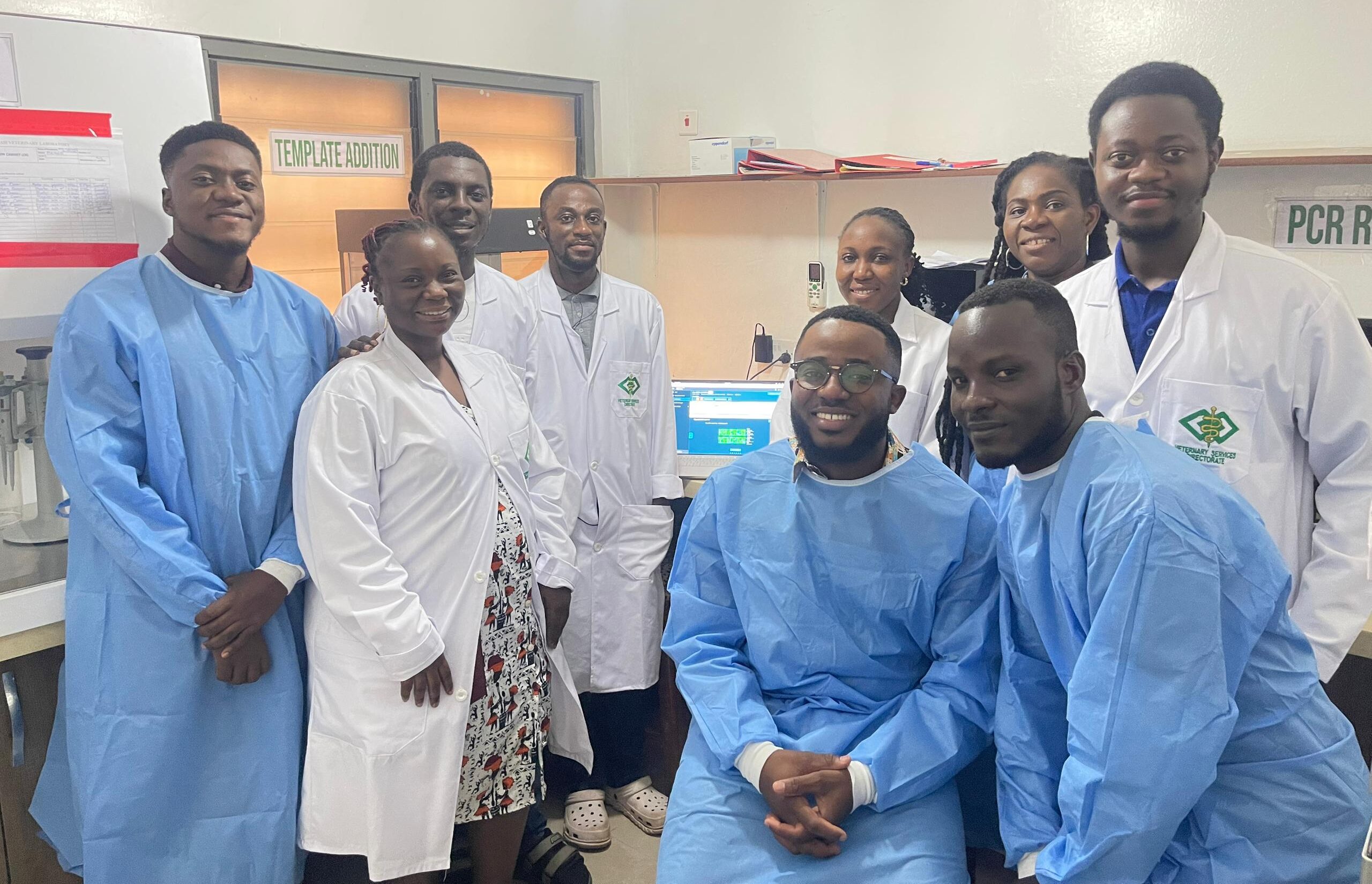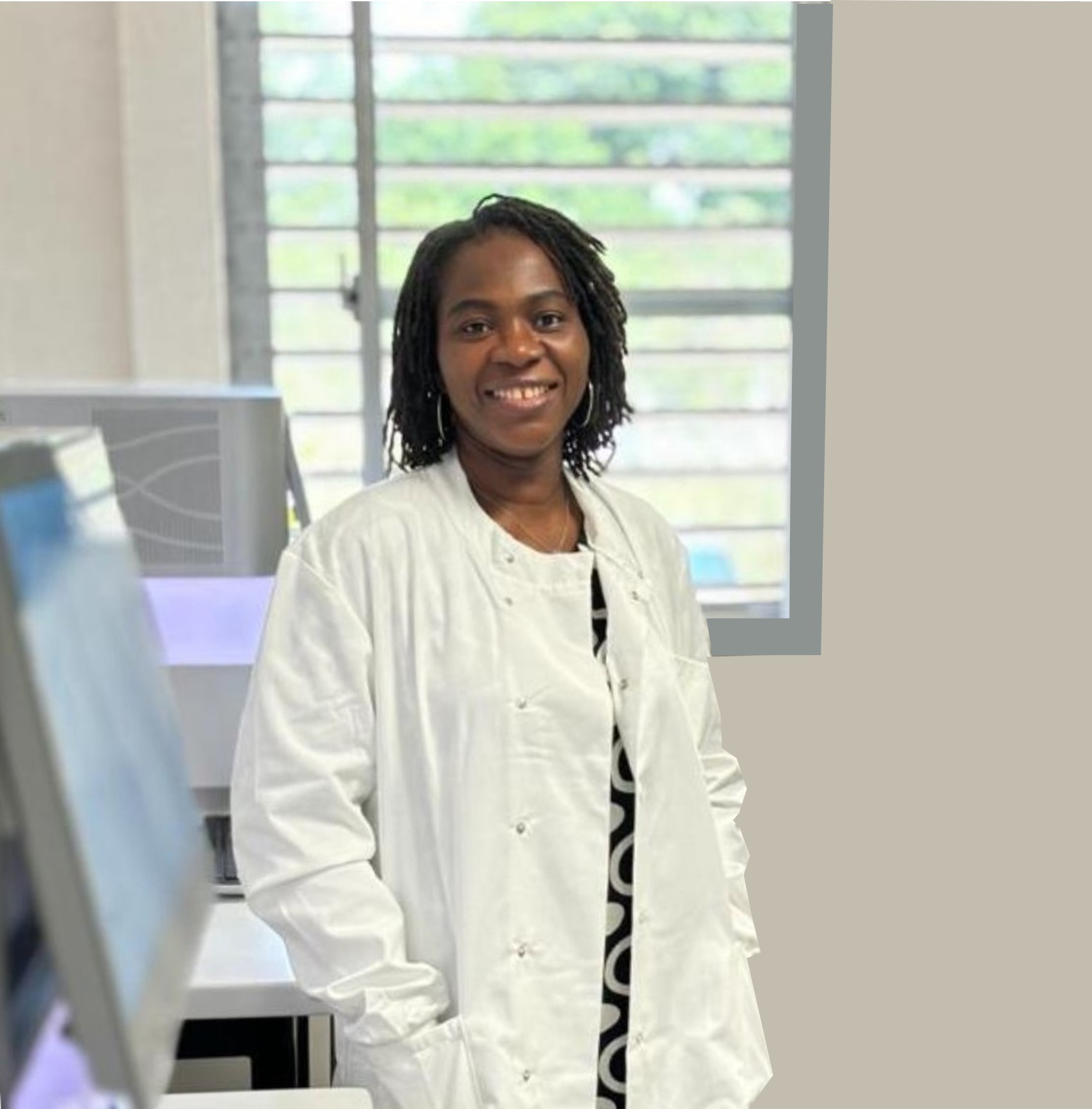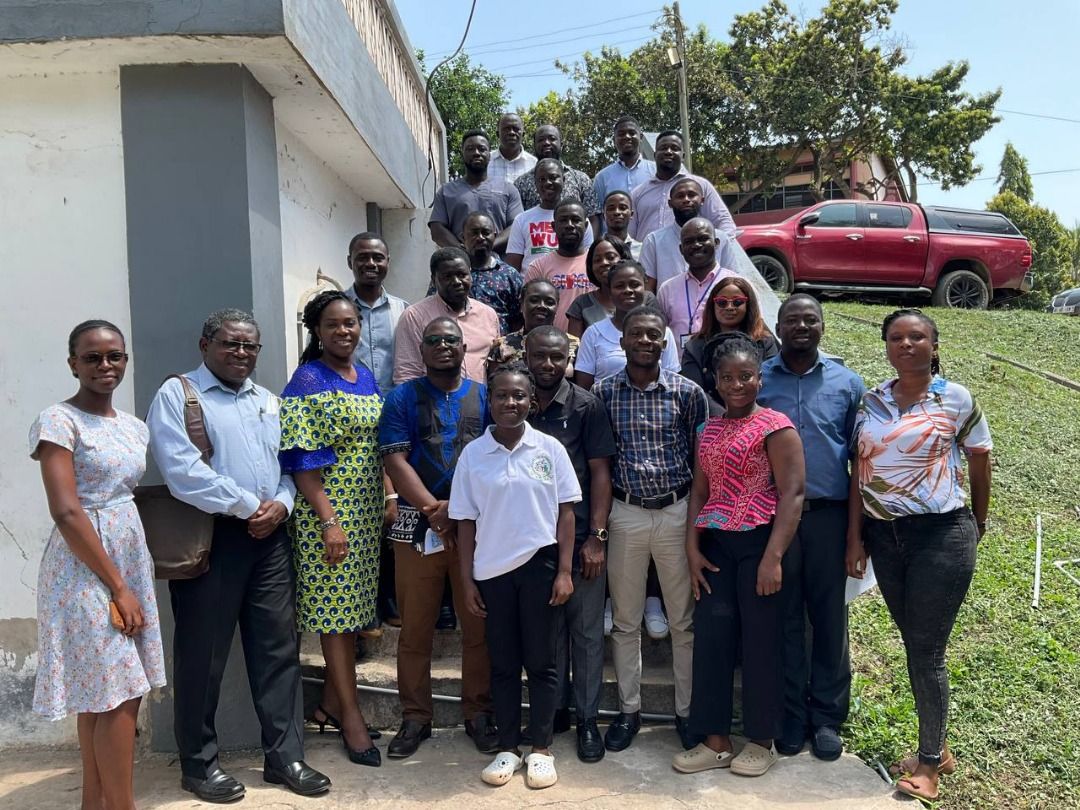The Technical University of Denmark (DTU), Fleming Fund regional grantee, presented on the SEQAFRICA project at the symposium ‘Beyond COVID-19: Pathogen Genomics and Bioinformatics for Health Security in Africa’, hosted at the African Union Commission in Addis Ababa, Ethiopia.
Genomics making an impact on AMR in West Africa
We spoke to Dr Beverly Egyir about her role as head of the SeqAfrica hub in Ghana, based at the Noguchi Memorial Institute for Medical Research (NMIMR). A Senior Research Fellow in the Bacteriology Department at the University of Ghana, Beverly manages genome sequencing of bacterial species across West Africa to enhance AMR surveillance and building capacity.
The Fleming Fund Regional Grant project SeqAfrica is a landmark initiative to advance the fight against antimicrobial resistance (AMR) through whole genome sequencing (WGS) and bioinformatics. Led by the Technical University of Denmark and partners in Africa: NMIMR in Ghana, the National Institute for Communicable Diseases in South Africa, and Institut Pasteur de Dakar in Senegal.
Beverly’s PhD in Molecular Bacteriology and Infection focused on phenotypic and molecular approaches, including whole genome sequencing to monitor AMR in bacterial species from humans, animals, food, water, and the environment.

Beverly started collaborating with several clinical microbiology laboratories in Ghana which exposed critical gaps in AMR surveillance, limited research data, and the urgent need for human resources and infrastructure development. This reinforced the One Health approach to tackle AMR in Africa - integrating human, animal, and environmental health sectors to develop sustainable mitigation strategies.
“Understanding AMR patterns, molecular resistance mechanisms, and the epidemiology of resistant bacterial species in Africa − my expertise and dedication to AMR surveillance, bacterial genomics, and laboratory strengthening − connected me to the Fleming Fund SeqAfrica project,” explained Beverly.

Beverly and her team conduct genomic sequencing of bacterial species from human, animal, and environmental sources across several African countries, mainly in West Africa. They also support other areas of the Fleming Fund in Ghana: Fleming fellows, the Tricycle project, and the Country Grant by sequencing bacterial species from AMR surveillance activities.
Data analysis informing policy
The bacteria isolates are cultured, DNA extracted and purified, libraries are prepared and sequenced using Illumina and Oxford Nanopore Technologies (ONT) platforms. The team then performs sequence analysis and interpretation for data sharing. Over 3,860 bacterial genomes have been sequenced, providing data on drug resistance and virulence gene content for various bacterial species.
"Valuable sequence data on AMR pathogens has been generated, offering crucial insights into genetic determinants of AMR and clonal diversity of a wide range of bacteria species from humans, animals, and the environment, said Beverly. "This data has been shared with national partners informing surveillance efforts, infection prevention and control, and antimicrobial stewardship strategies."
A national genomic AMR surveillance pilot project is also taking place, sequencing the Global Antimicrobial Resistance and Use Surveillance System priority pathogens and the WHO priority organisms from various clinical sources from over ten hospitals across Ghana.
"We engage with clinicians, pharmacists, nurses, laboratory scientists, and other stakeholders and share findings from genomic surveillance data obtained from isolates provided by surveillance sites or hospitals. This highlights the impact of AMR and the key role sequencing plays alongside Antimicrobial Susceptibility Testing," said Beverly.

Beverly with group disseminating findings from genomic AMR surveillance at Effia Nkwanta Regional Hospital in Ghana.
Training and building capacity
Beverly and her team have also developed training workshops for students, laboratory staff, and researchers from other African countries facilitating regional expertise. This covers bacterial identification, DNA extraction and purification, library preparation, sequencing, bioinformatics analysis, and genomic data interpretation.
This included training the laboratory staff at the Eastern Regional Hospital and Kumasi Veterinary Laboratory, Ghana in bacterial sequencing using the ONT platform and data analysis EPI2ME pipeline.
“This has successfully built local capacity, enabling staff to perform sequencing independently and strengthening expertise for sustainable AMR surveillance,” said Beverly.
The SeqAfrica project has established systems and infrastructure for WGS and analysis, developing a skilled workforce at NMIMR. Conducting several training workshops for Fleming fellows, and laboratory staff in Ghana and from across Africa in wet lab (DNA extraction/purification, sequencing) and dry lab (bioinformatics analysis, data interpretation) techniques for genomic AMR surveillance.
In addition, the team established supply chain connections and streamlined procurement processes for reagents and consumables, enabling them to maintain essential laboratory supplies for sequencing.
“However, relying on a third-party supplier to access sequencing products significantly increases costs, which is a common challenge across Africa,” explained Beverly. “Direct purchasing of sequencing reagents would help lower costs, improve accessibility and the sustainability of sequencing efforts across the continent.”
Significant strides in Ghana
“As our sequencing capacity continues to grow, there is a need to expand bioinformatics expertise. Ongoing support, funding, and mentorship programmes are essential to building a strong and lasting workforce for AMR surveillance in Africa,” said Beverly.
The findings from the SeqAfrica genomic AMR surveillance activities have been shared with key stakeholders at both national and international levels. In Ghana, they have engaged members of the National AMR Platform, while globally, their work has been presented at forums, workshops, and conferences. Additionally, research has been published in peer-reviewed journals, including mSphere.
The SeqAfrica project has made significant strides in advancing genomic AMR surveillance, infrastructure, and workforce training in Ghana and across Africa, said Beverly. “To maximise and sustain its impact long-term, it is crucial to maintain and expand the key areas of progress, ensuring that the gains made continue to drive meaningful change.
More Like This
The human genome was fully sequenced for the first time nearly 20 years ago and has consequentially resulted in remarkable medical and scientific discoveries. Since 2003, whole genome sequencing (WGS) has been used to help stop the spread of infections, develop cures to rare diseases, support surveillance programmes and identify signs of genetic disease transmission.